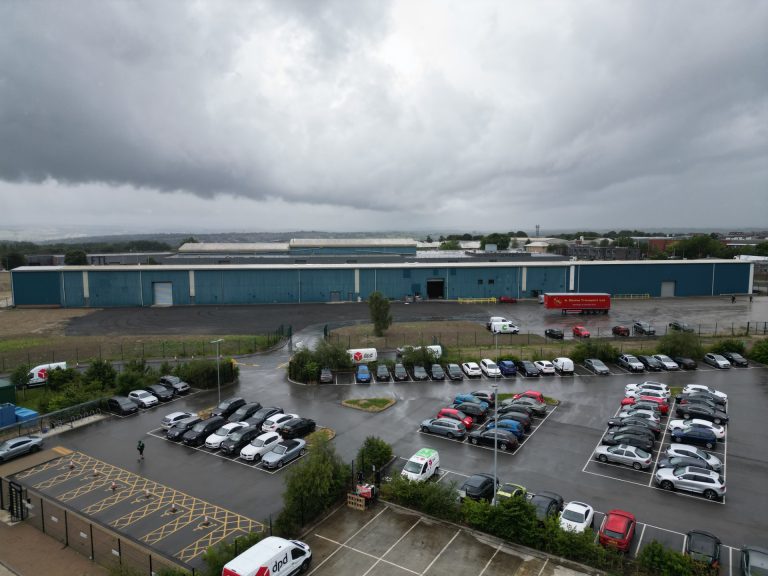Court imposes £48,000 penalty over waste permit breaches in Scunthorpe
National Park Authority names new Chair and Deputy Chair
Rotherham medical device manufacturer acquires Manchester business
Rotherham-headquartered Marsden Group is targeting future growth within international and UK healthcare markets following the acquisition of specialist surgical instruments and medical device manufacturer Bailey Instruments.
The acquisition of Manchester-based Bailey Instruments will complement and strengthen Marsden Group’s international growth strategy, by expanding the company’s existing range of medical instruments which are used by medical professionals operating within the UK’s public and private healthcare sectors.
The deal will see the Bailey Instruments brand retained by Marsden Group, with chairman Tim Bailey playing a consultancy role within the business. Fellow director Gemma Bailey will remain actively involved within Bailey Instruments and will be responsible for leading Bailey’s international growth.
Launched in 1989 by Tim and Sally Bailey, Bailey Instruments developed high quality re-usable products for the podiatry sector. Today the company is responsible for manufacturing a diverse range of single-use and reusable medical devices which are used in general surgery, podiatry, maternity and ENT.
Mark Holdaway, CEO for the Marsden Group, said: “There is a great deal of synergy between the innovative work being delivered by Bailey Instruments and the Marsden Group. The acquisition of Bailey Instruments will provide new opportunities for both businesses, by extending and diversifying the range of solutions we provide to our customers within the healthcare sector.
“The acquisition will provide new opportunities for both businesses, both in terms of investing in research and development, bringing new products to market, as well as building on their expertise, experience and manufacturing capabilities, as we target future growth.”
Tim Bailey, chairman of Bailey Instruments, said: “Joining the Marsden Group of companies will provide us with an opportunity to continue the innovative work we have been delivering in the healthcare sector for nearly 40 years. Together, we will continue to enable caregivers to make a real difference to patient outcomes everywhere.
“When we first entered into discussions it was very clear that our vision was very much aligned with that of the Marsden Group and I am confident that the acquisition will provide opportunities to share our expertise and knowledge, helping to improve patient outcomes by continuing to invest and innovate, whilst crucially providing business continuity as well as helping to unlock new opportunities to grow and develop our operations.”
Established in 1926, Marsden is a leading manufacturer of medical weighing devices and has been responsible for delivering services to the NHS for more than 50 years. Headquartered in Rotherham, South Yorkshire, the company employs 50 members of staff. Marsden is a member of the UK Weighing Federation and is accredited by SGS Limited.
Packaging company agrees deal on 41,598 sq ft industrial unit to consolidate regional sites into new HQ
Acting on behalf of Leeds-based property company, J Pullan & Sons, CBRE’s Industrial team in Leeds has completed a deal on a 41,598 sq ft warehouse/industrial unit at the Howley Park Estate in Morley.
Food and beverage packaging company Coptrin has relocated to the site having taken a 10-year lease on the unit. The family-owned company is amalgamating 4 regional sites into its new headquarters facility, a move which will facilitate its continued growth.
The unit provides modern, single-story warehousing featuring extensive service yard and car parking.
Alex Henderson, Managing Director of Coptrin, said: “This move provides a platform for us to expand our product range and improve our operational efficiencies. We look forward to this exciting next chapter as the business continues to grow.”
Ellie McCollin, CBRE Industrial team in Leeds, said: “We are delighted to complete the deal on this modern warehouse/industrial unit close to Leeds City Centre. It provides occupiers with perfect connection to the transpennine and M1 motorway corridors, as well as great recruitment access thanks to a densely populated local area.
“The availability of new design and build units of a high standard also gives potential occupiers opportunities to create bespoke space to meet their needs.”
Bruce Strachan, Property Director at Pullans, said: “We are pleased to welcome Coptrin to Howley Park and look forward to a long-lasting relationship with them as their business continues to expand. Alex and his team have been a pleasure to work with and we wish them every success.”
Jonathan Jacob from GV&Co added: “We are delighted to have acted on behalf of Coptrin to secure this off-market opportunity at a time when buildings of this size are in such short supply.”
CBRE acted on behalf of the landlord J Pullan & Sons and GV&Co acted for the tenant.
West Yorkshire businesses get new support to go green
Businesses hit hard by inflation and the climate crisis will benefit from new support being launched by West Yorkshire Mayor Tracy Brabin.
The Mayor’s Business Sustainability Support will help small and medium-sized businesses cut their energy use and combat the effects of climate change.
The West Yorkshire Combined Authority will work with interested businesses to develop and implement new sustainability plans, aimed at slashing energy bills and boosting resilience against rising temperatures, supply chain issues and flooding.
Following a free assessment of the firm’s environmental impact, these bespoke plans will recommend various workplace adaptations, such as lighting that is more energy efficient, measures that cut down on waste, or equipment that harnesses cheap, clean and renewable energy, including solar panels.
Advice will then be offered on how to deliver the plan, secure public and private investment, and make sustainable changes to ensure annual energy bill savings long into the future.
Mayor Tracy Brabin said the new support will be a ‘gamechanger’ in the region’s fight to become a more resilient, Net Zero carbon economy by 2038. The £10 million fund comes after the Mayor’s recent launch of the West Yorkshire Plan, which commits to building a greener, more vibrant West Yorkshire that works for all.
Commenting on the scheme, Mayor Tracy Brabin said: “As the cost of living and energy crisis continues, it’s vital we step up support for our hardest hit businesses, helping them keep down costs, protect jobs and stay afloat during this difficult time.
“This new, £10 million scheme will help us deliver a greener West Yorkshire by slashing the carbon footprint of our small and medium-sized businesses, while futureproofing them against the harmful effects of climate change.
“As we transition to a net zero carbon economy by 2038, we’re determined to ensure that no business is left behind, as we work to make positive, greener changes that benefit all our communities across the region.”
Cllr Shabir Pandor, Leader of Kirklees Council and Chair of the West Yorkshire Combined Authority Business, Economy and Innovation Committee, said: “I’m delighted we’re able to provide support of this quality to individuals and businesses who have the potential to drive forward their innovative ideas. “Equipping the entrepreneurs of West Yorkshire with the skills they need to succeed will not just improve their personal circumstances. It will boost our regional economy through the creation of more high-skilled jobs and greater inward investment. “We’re building a stronger, brighter West Yorkshire where everyone can reach their full potential, and that includes our brilliant entrepreneurs with local solutions to global challenges.”The scheme will build on previous sustainability support through the Mayor’s Resource Efficient Business programme, which helped 360 West Yorkshire businesses save an average of £11,500 per year on their energy bills.
Lowe Engineering Limited, a Leeds-based power plant equipment supplier, received £5,000 of grant investment from the Mayor last year. The funding was used to fit the warehouse and offices with modern LED lighting, to help save the business up to £2,000 per year.
Speaking about his experience, Operations Director Graeme Walker said: “Improving the lighting throughout our premises had been on our ‘to do’ list for some time but, due to the large initial expenses and slow cost-saving recovery, it was always at the back of the queue when it came to annual building repairs and improvements.
“However, with the onset of higher energy prices coupled with the Mayor’s support, we were encouraged to install LED lighting throughout the building, and recovered our 50% of the expenses within a short period of time.
“It is safe to say that without the scheme in place, this improvement would still be on the ‘to do’ list.”
Children’s University names Rose Jones as CEO
Rose James has been appointed as Hull & East Yorkshire (HEY) Children’s University CEO having been interim CEO since March, following the departure of Natasha Barley.
HEY Children’s University strives to give every child the opportunities they deserve, no matter what circumstances they were born into. The charity offers a diverse range of experiences, from days at local businesses where they learn about career options and take part in activities, to visits to cities including London and Edinburgh Rose said: “It’s an amazing charity and a great place to work. The team is fantastic and everyone is truly passionate about what they do – which is to make a difference in disadvantaged children’s lives across our region. “I am especially passionate about our ‘HEYCU in the Future’ experiences. These experiences give children the opportunity to visit a local business to spend a ‘day in the life’ with staff. We’ve worked with over 20 businesses to deliver these so far and it’s proven to be incredibly successful. One of the children who attended our last HEYCU in the Future session described it as the best day of his life. “I’m excited for the future of HEY Children’s University. I’ve got some big ideas and look forward to working with our team, trustees and supporters to make them a reality.” Richard Field, HEY Children’s University’s chair of trustees, added: “Rose joined HEY Children’s University in 2013 and from day one, has proven herself to be an invaluable member of the team. “On behalf of the board of trustees, I’d like to thank Rose for everything she’s done for the charity so far. It was a unanimous decision to appoint her as our new CEO and I look forward to working with her as we continue to help and inspire as many children as we can.” HEY Children’s University receives financial support from partnerships with local businesses including Northern Gas Networks, the University of Hull and Associated British Ports.City of Doncaster Council launches search for Doncaster Sheffield Airport investor/operator
As part of the City of Doncaster Council’s preparations for a potential lease of the former Doncaster Sheffield Airport (DSA) site from owners Peel, it has launched a search to find an investor/operator for the airport.
Dewsbury Arcade gets £4.5m boost from National Heritage Lottery Fund
Cycling charity gets £60,000 grant for community cycle hub work
- Goodwin Trust, Walker Street – Wednesdays and Fridays 10am – 4pm
- Peel Street Park, Peel Street – Mondays 10am – 3.30pm
- The Hut, Preston Road– Tuesdays 8.30am – 4pm and Thursdays 11am – 4pm
- Alf Marshall Centre, Bransholme – Tuesdays 10am – 3pm
- St Michaels Youth Centre, Orchard Park – Fridays 10am – 4pm












